Organize saved jobs, optimize your profile, and find offers that match your goals
This Chrome extension helps job seekers and project hunters in three ways: Makes it easy to save job offers you're interested in and organize them in one place. Analyzes your profile against saved jobs, helping you understand what's missing to become the perfect candidate for your target roles. Screens your saved offers and helps you identify those that best align with your goals and skills.
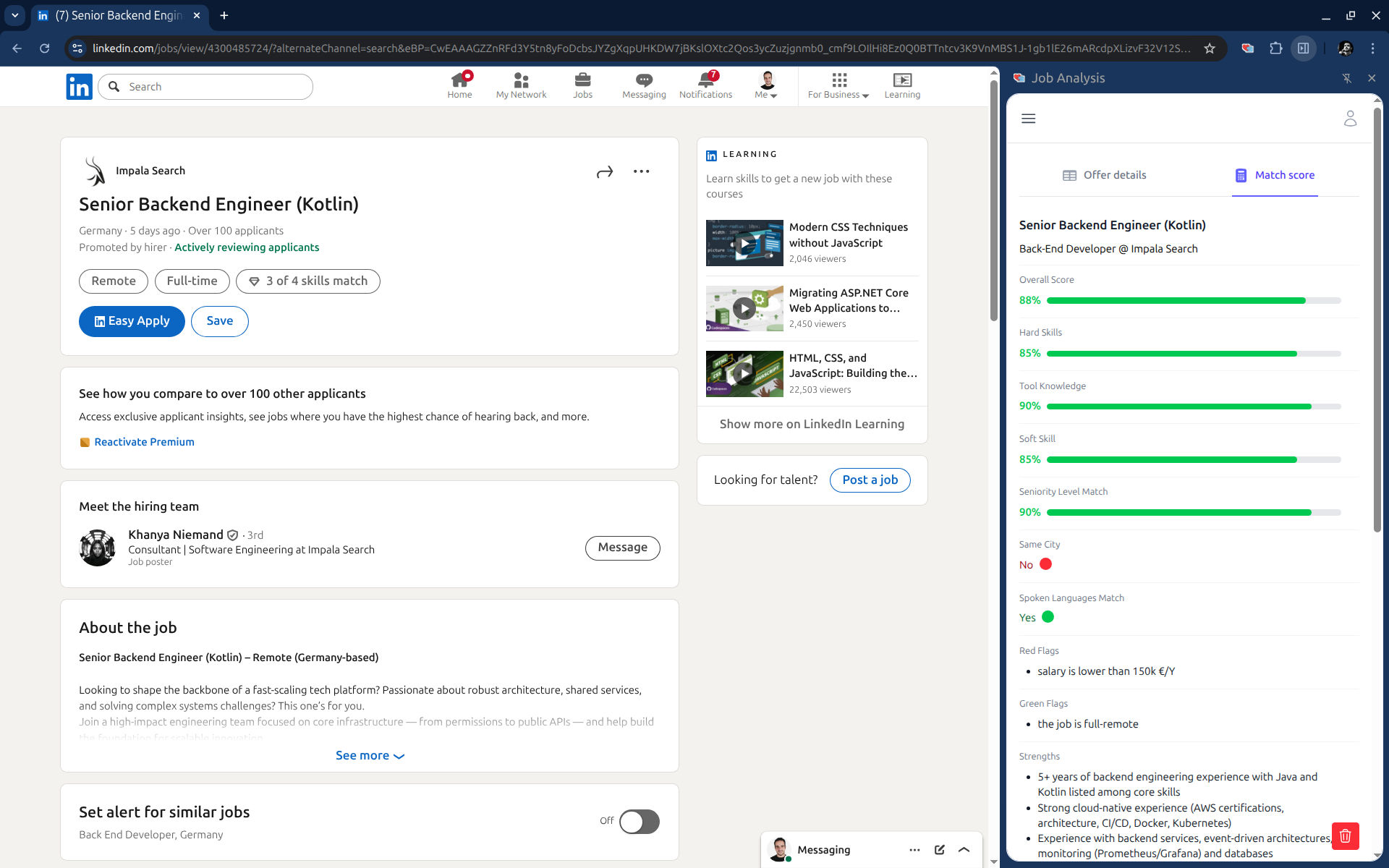
The problem
Everyone knows how long and tedious the job search process can be. It involves monitoring too many portals for new offers, reading through countless job descriptions to evaluate if they meet our requirements, and spending too much time figuring out which aspects of our experience are relevant for each specific position. Often, we discover red flags only after having waisted a lot of time on an offer and must move on to the next one.
- Too many job portals to monitor.
- Too many irrelevant job offers to sort through.
- Too much time screening offers.
And on top of the search pain, you need to track all the applications, where and when you applied, and at which step of the hiring process you are in each application.
The solution
A browser extension that helps you save job offers from multiple portals and extracts relevant information in a standardized format.
- All your saved job offers in one place.
- Calculate how well each saved job matches your profile.
- Filter and sort your saved offers based on your preferences.
- Identify gaps in your profile for your target roles.
Browse job board websites and save offers with one click. Calculate your profile match score for each saved job, then filter and sort them to focus on the most relevant opportunities.
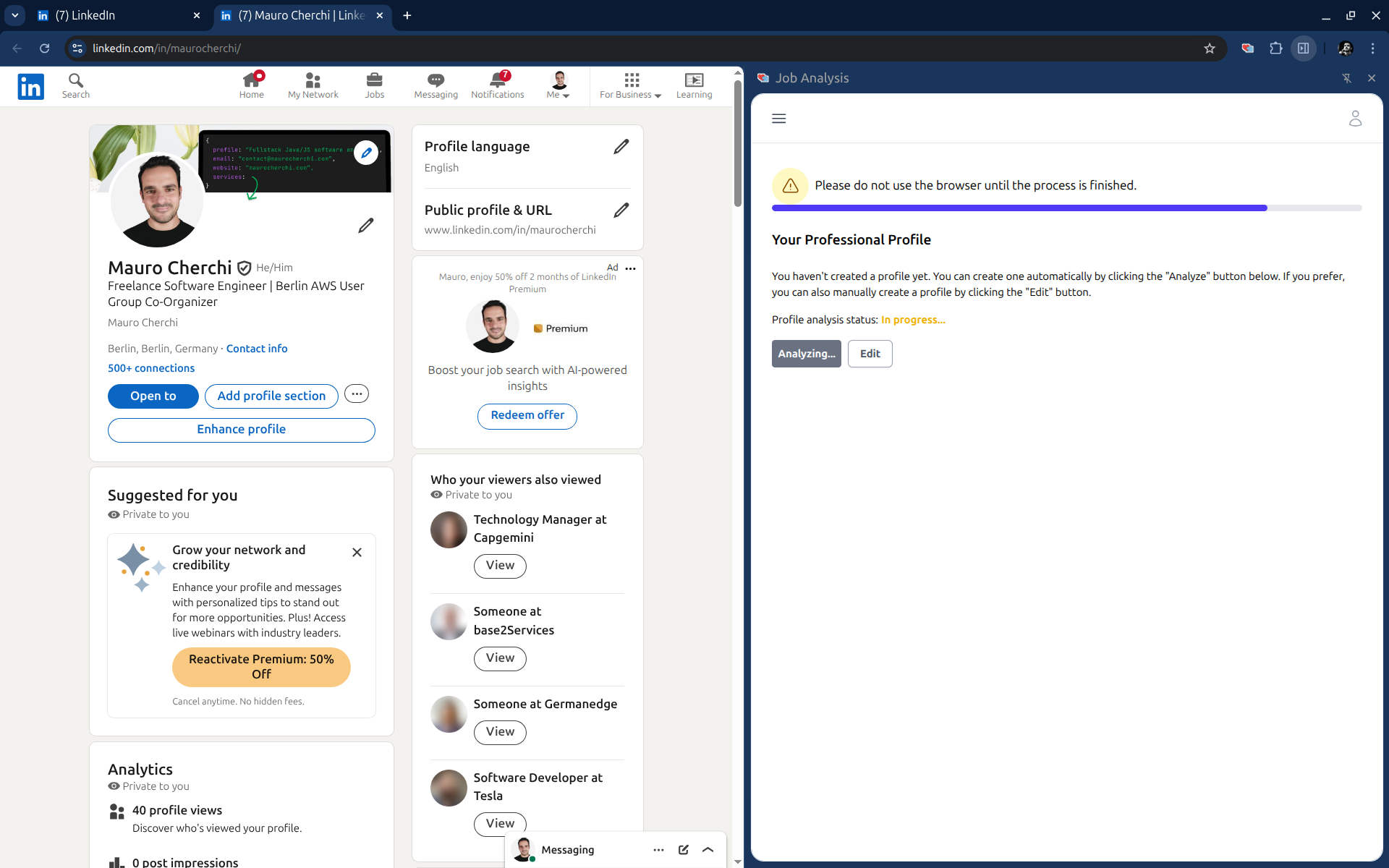
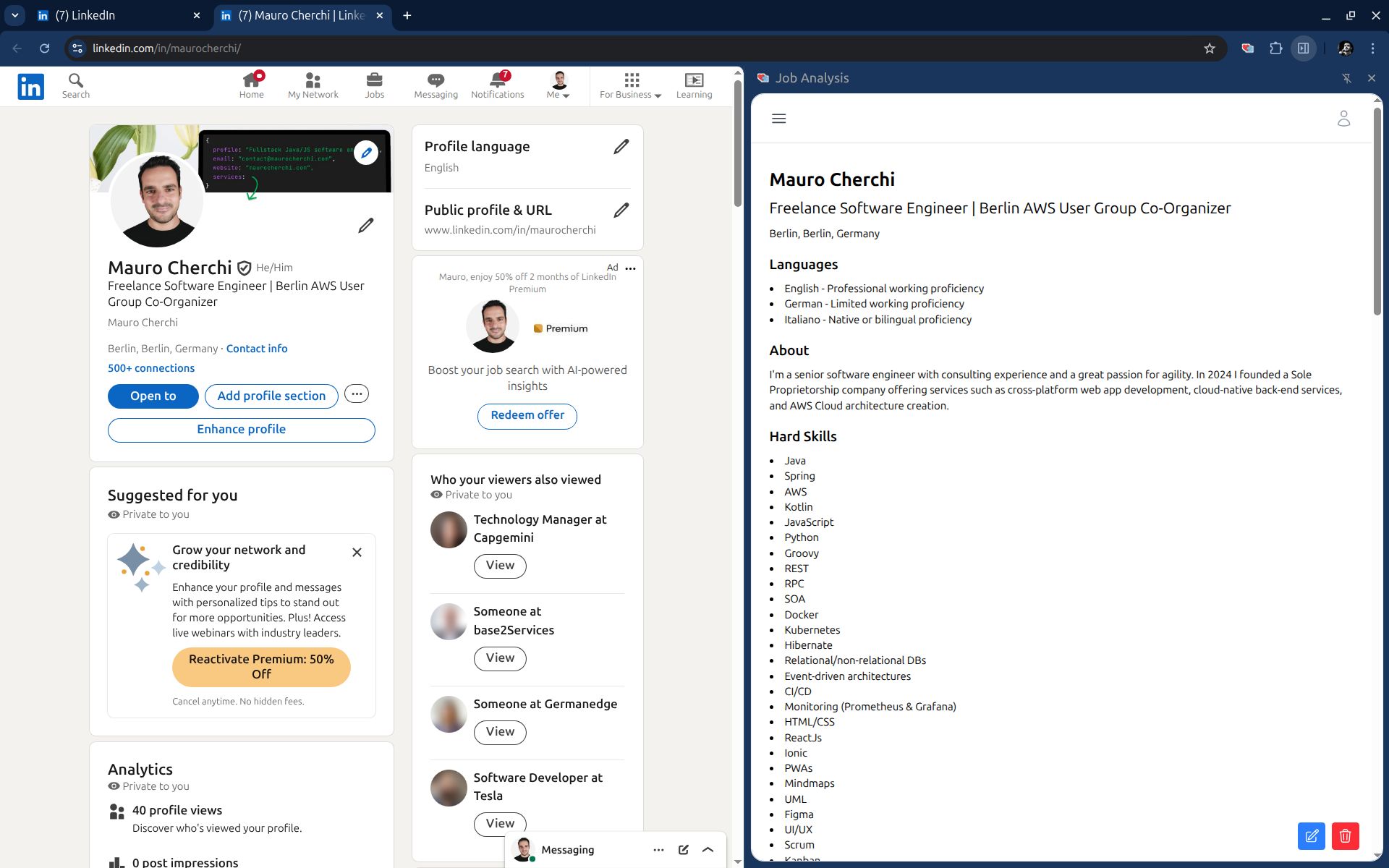
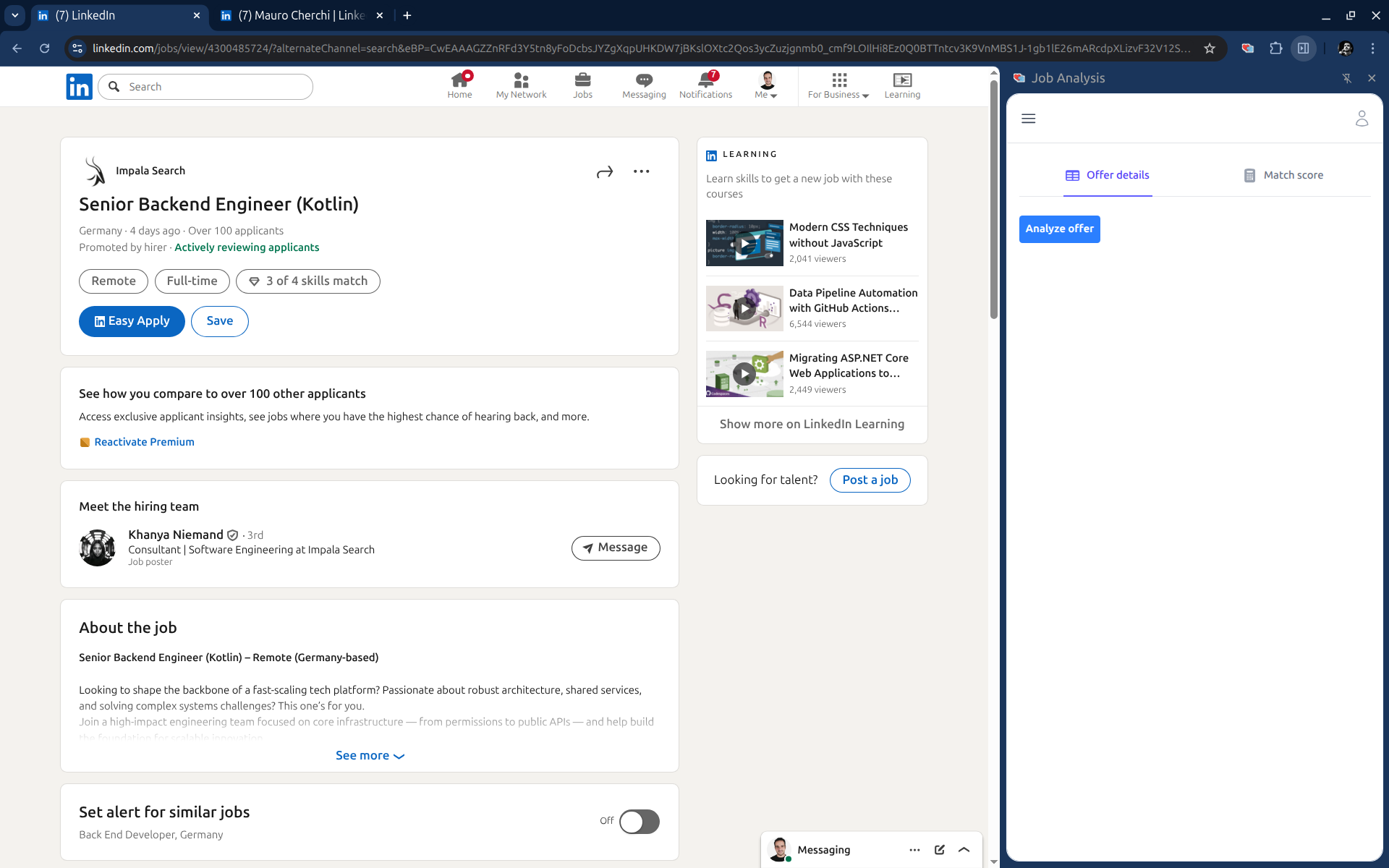
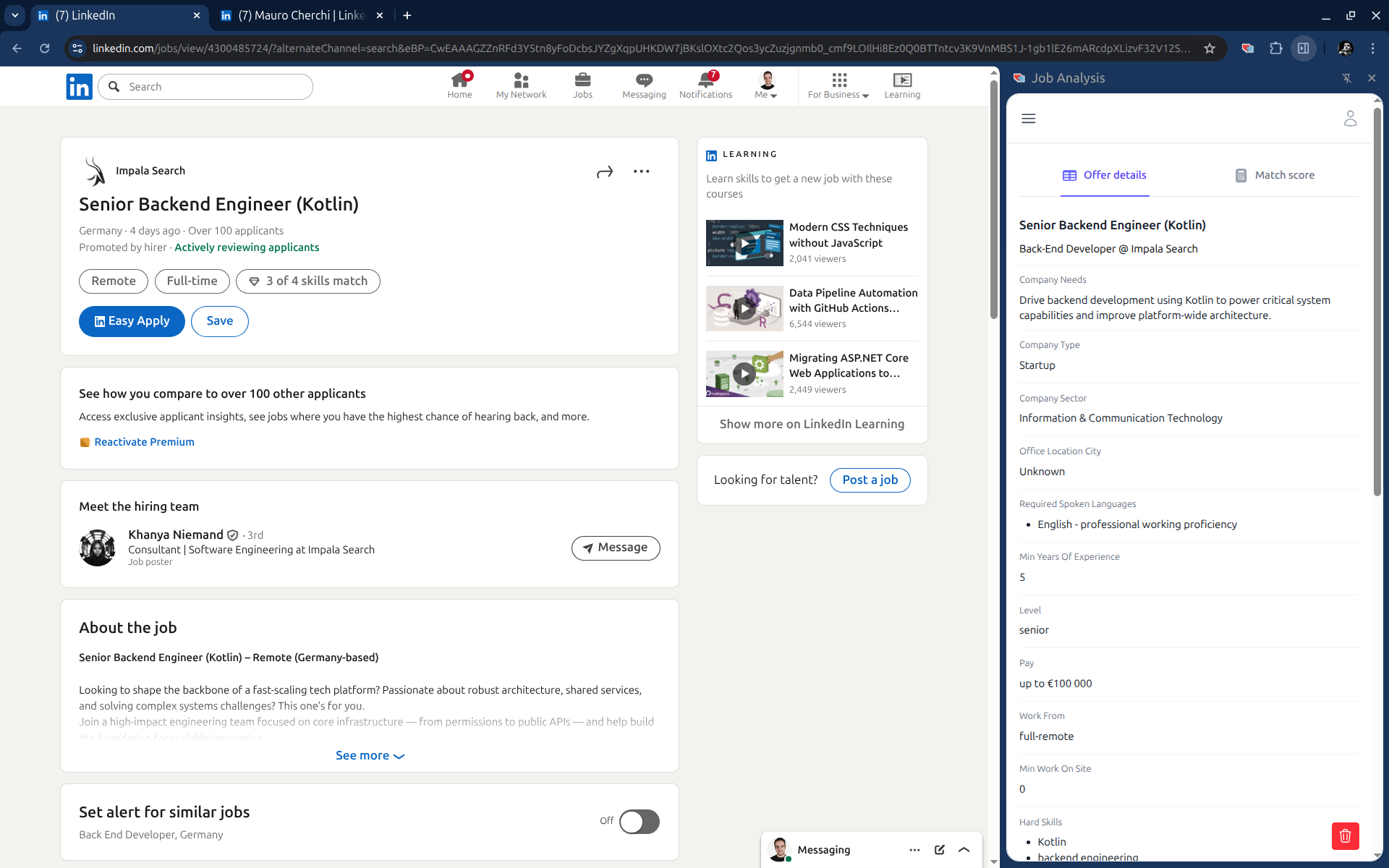
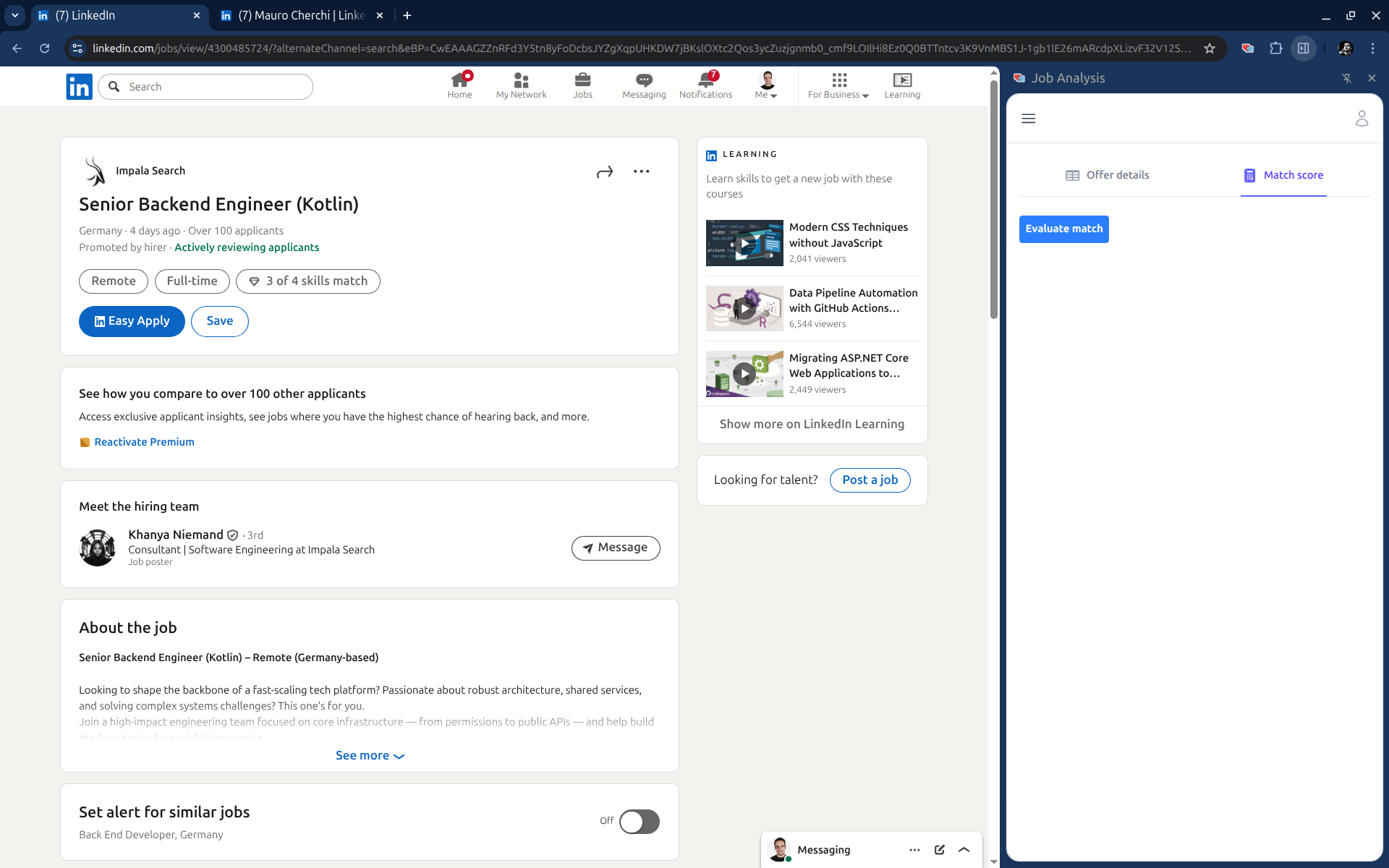

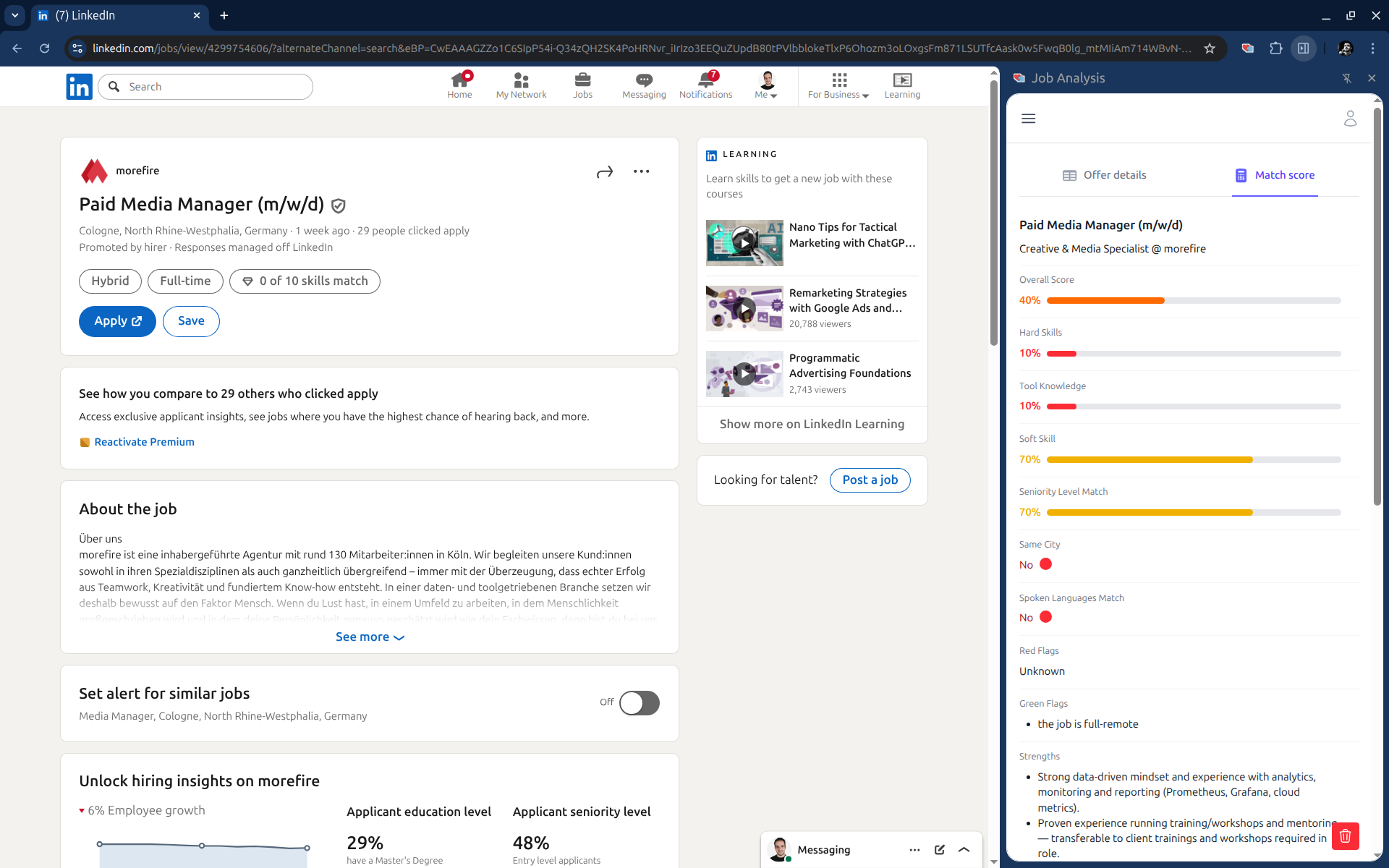
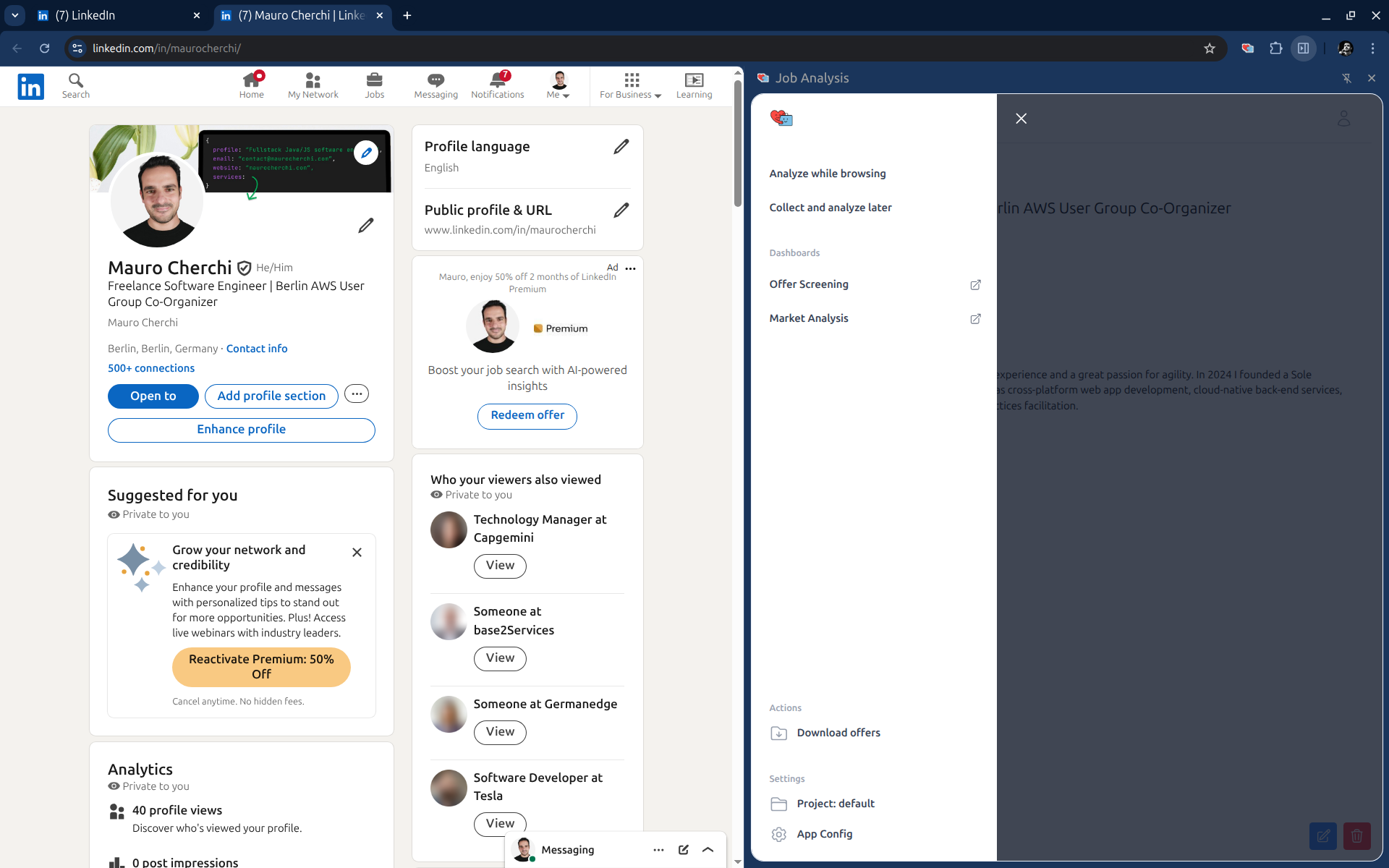
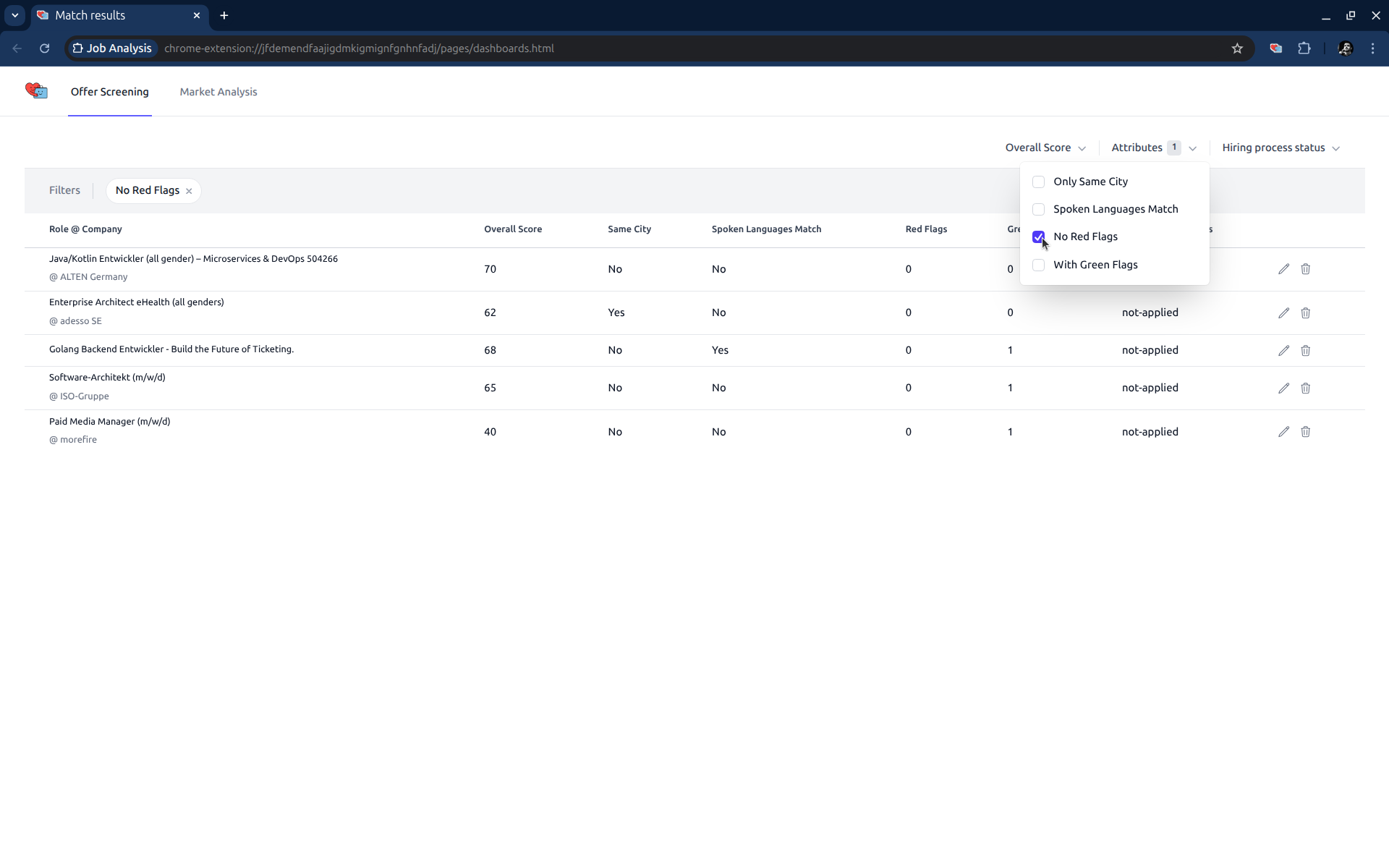
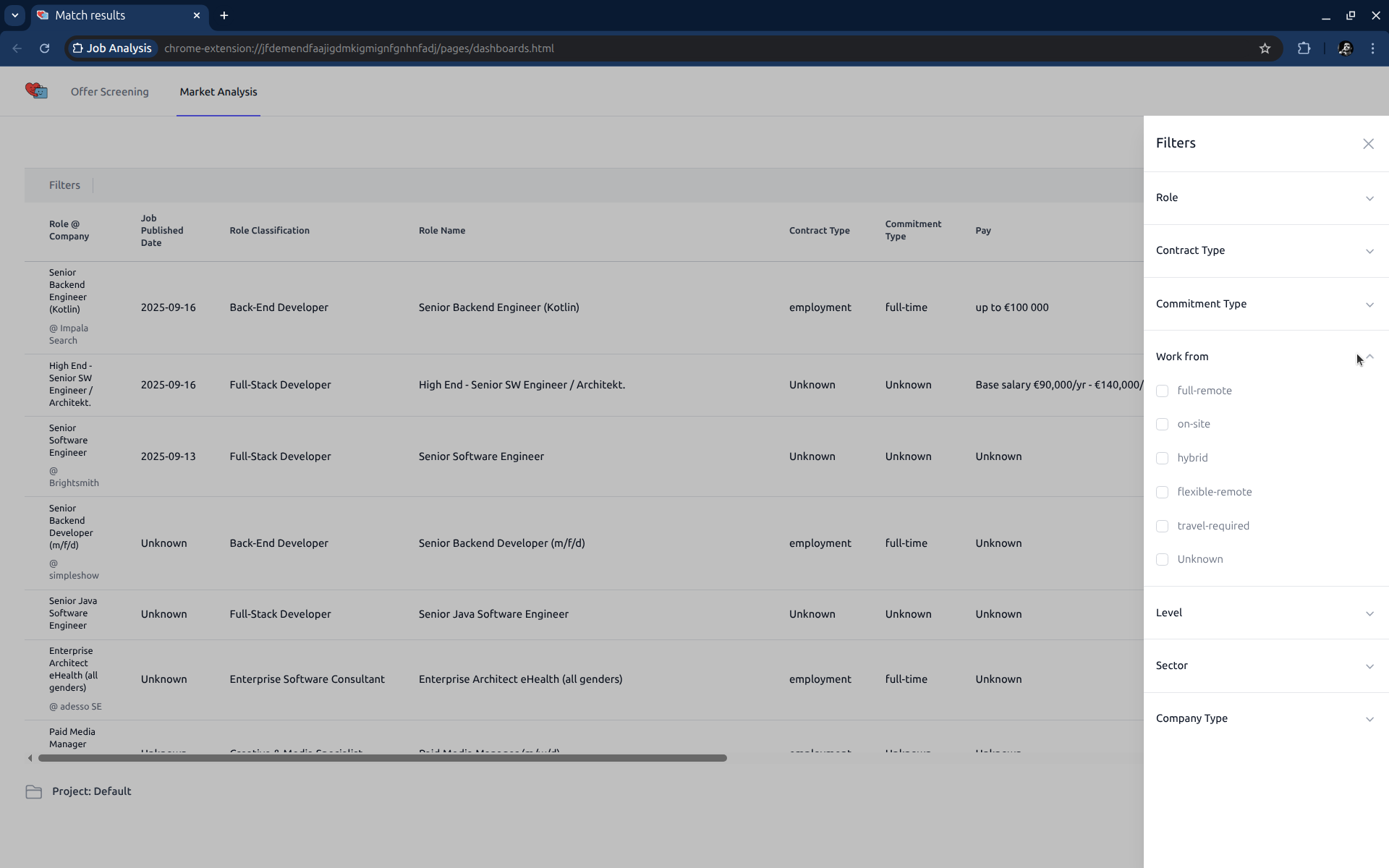
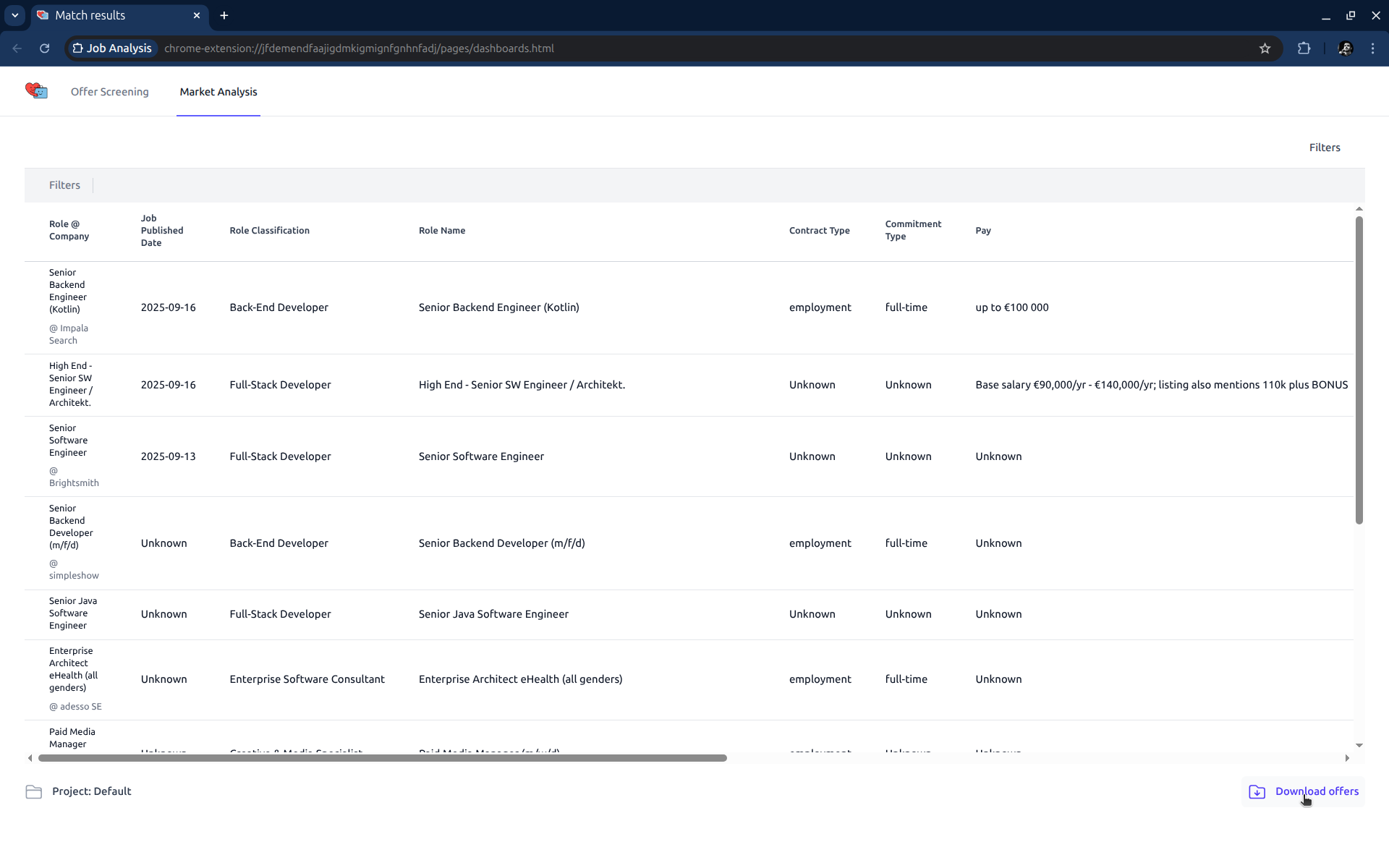
Additional details
Front-end
Figma React TypeScript Tailwind Browser APIsBack-end
Typescript OpenAI LLMs Prompt EngineeringPlatform
AWS API Gateway Cloudfront Lambda DynamoDB AWS CDKTo prevent unexpected increases in cloud service costs due to usage spikes or DDoS attacks, the APIs are protected by AWS Shield and the OpenAI costs are limited to a certain amount.
Offer details extraction
Offers are presented in different ways across Job boards and they can even change over time.
The data extraction is performed part on the browser and part on the backend by LLMs. This way I can improve the logic without requiring the users to install a new version.
User access
I've implemented a simple API key authentication system. Each user receives an API key with associated quotas and limits enforced by the backend. This way I can conveniently activate or deactivate keys and grant credits.